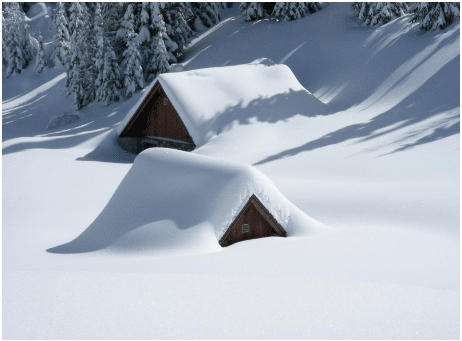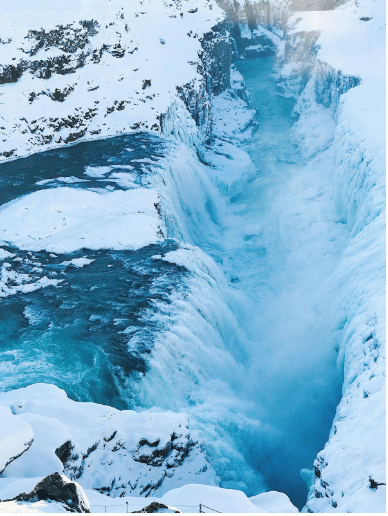Was Thanos right: Snow Melt- Erakina
Water melts from the snow covers when the air temperature rises above the freezing point. This might not seem that important to people, but this phenomenon is as important as rain as it helps in recharging the groundwater system. This runoff water is essential to many places as it helps in annually filling up the water cycle worldwide. But primarily, snowmelt is attributed to the melting of ice and snow accumulated on mountain peaks, also known as snowpack. This melting starts from the end of the winter season in April and continues till July. Excessive snowmelt can also lead to flood situations.
Excessive Snowfall.
What makes the snowpacks melt?
- Melting snow brings about various energy fluxes; Ground can transfer heat from multiple places to the snow, making it melt. These heat transfers can be of two types: delivering heat or removing heat from a site.
- Ground heat always gets delivered to the snowpack by soil heat conduction.
- Snowpacks also get solar radiation input; they can be either shortwave or longwave forms. Shortwave radiation is the difference between the energy received by the sun and the energy reflected by the snowpack. Longwave radiation is received by ozone, carbon dioxide, and water vapors present in the atmosphere, and even black body radiation can create longwave radiation.
The Part of Snowmelt in the Water Cycle:
- Snowmelt is an important phenomenon in the water cycle. It helps recycle and purify water by going through various phases of the atmosphere, land, and waterways.
- In the winter, snowfalls by forming ice caps and glaciers. And once the winter season ends, the temperature starts to warm up at 32 degrees Fahrenheit; the snow covers begin to melt, flowing downhill into lakes and rivers.
- Any water is flowing down after snowmelt is either taken up by trees or down to the groundwater table.
- Now, the amount of snow creating water varies everywhere, but a general rule suggests heat can convert 10-12 inches of snow into 1 inch of liquid water. This rule may also vary depending upon the type of snow, whether it is powdery or not.
Iced River.
Snowmelt Affected by Climate Change:
- Climate change has been affecting snowmelt phenomena too.
- The warmer temperature in winter has resulted in lower total snowfall in several sections of the country; more precipitation falls as rain rather than snow because of the warmer temperatures.
- Furthermore, winters in the last 30 years have been 15 days shorter than in the previous 30 years, implying a reduced window of opportunity for snowfall.
- Snowmelt events are also moving due to Earth’s 2.2-degree Fahrenheit warmer atmosphere. Spring snow cover is disappearing earlier in the year than it was 50 years ago.
- For example, across North America, drops in June snow-covered areas of 5 to 25% are common.
- Aside from providing less water for drinking and hydroelectric power generation, such changes could have an impact on food production by affecting agricultural river basins that rely on snowmelt to water their crops.
- Under a 7-degree F warming scenario, the Colorado River Basin, which now gets 38 percent of its water for irrigation from snowmelt, may expect to bring no more than 23 percent from snowmelt.
Excessive Snow melting.
Conclusion:
Snowmelt has been an integral part of us and our water cycle right from the beginning. It might be an elementary phenomenon, but it holds a lot of importance for everyone in the world. It holds up the water cycle and keeps it going; without it, our underground water table would have been depleted unless charged annually by the snowmelt. And the recent harsh climate change and global warming factor has been affecting, but it has gone to a point where it can cause flood-like situations at places. We stand at such an acute angle of climate change that we are on the verge of springtime altogether, messing up with the water required for irrigation from snowmelt. Global warming has pushed us to the point where we live in extremes; it is either wildfire everywhere or flooding. It is like we have lost our balance in nature. As Thanos had said: Perfectly balanced, as all things should be.
By ANUSHKA ASH
05/01/2022









